Over my years practicing as a sports physical therapist, I get a lot of questions surrounding how to best fuel clients bodies for exercise. There is so much conflicting information out there about the best way to fuel prior to and after workouts.
One thing for individuals to keep in mind, is that there is no one size fits all. What works for one athlete or active individual, may not fit 100% to another athlete or active individual.
With that said, there are some helpful guidelines to keep in mind when fueling for exercise or performance. Below, we will provide some helpful tips on how to keep your body fueled for your next exercise session.
Pre-Workout Fuel:
Goal: Supply glycogen (your immediate energy you use during exercise).
Timing: Ideally 2-4 hours prior to your workout session. If you do not have this available window of time, for example early morning exercisers, the type of foods you choose <2 hours prior to exercise will be different.
What to eat:
2-4 hours prior: slower digesting carbohydrates, lean proteins and a little fat. Carbohydrates should make up majority of macronutrients as they are quicker digesting in comparison to protein. Limit fats due to potential gastrointestinal distress.
-
Examples:
-
Carbohydrates: Rice, sweet potatoes, bagels, oats
-
Proteins: Turkey, chicken, eggs
-
Fats: Butter or avocados
-
<2 hours prior: choose quicker digesting carbohydrates, whey protein and very light fats or limit fats all together. May be best to choose a blended or liquid source such as a smoothie.
-
Examples:
-
Carbohydrates: Fruits (bananas, apples, berries)
-
Protein: Whey protein powder or bars
-
Fats: Almonds or nut mix if able to tolerate
-
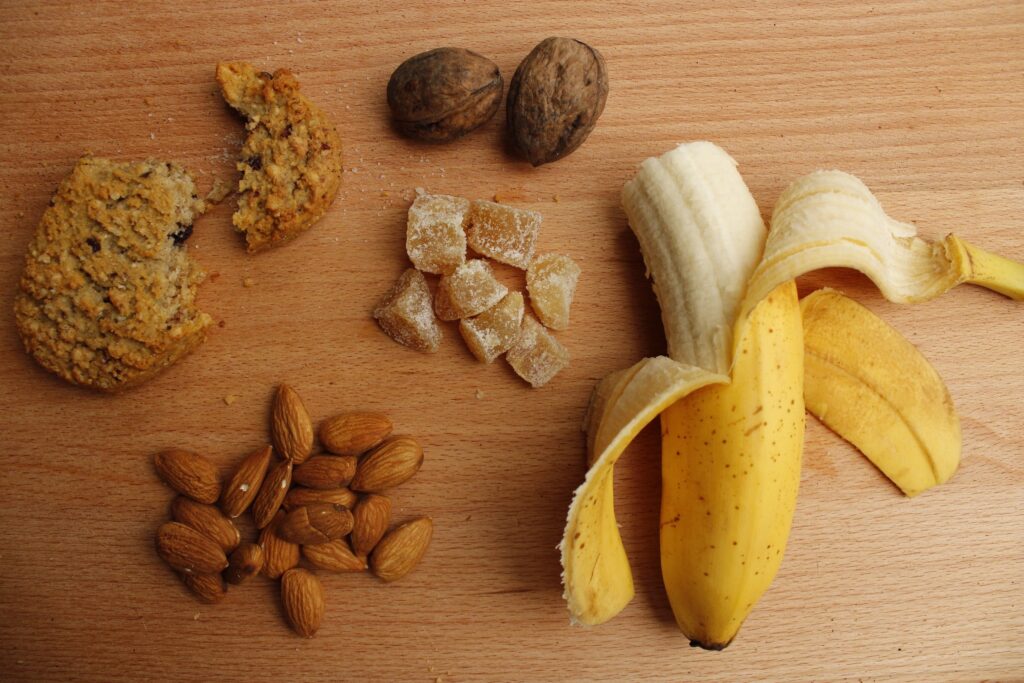
Post-Workout Fuel:
Goal: Recovery and muscle repair
Timing: Shoot to eat or utilize recovery drink/snack within 30 minutes of exercise.
What to eat:
Within 30 minutes of exercise: Choose a carbohydrate rich snack to help replenish depleted glycogen stores.
Examples:
-
Chocolate milk
-
Fruit or vegetables
-
Carbohydrate rich recovery drink
Within 1 hours of exercise: protein rich meal. Shoot for 15-25g of protein.
-
Examples:
-
Turkey, Chicken, Salmon
-
Protein powder or shake if unable to consume full meal
-
Quick meal option: PB&J (balance of carbohydrates and protein)
-
Another question I get, is if individuals need to fuel during workouts?
Once again, this depends on the athlete. For most individuals who are exercising for 60 minutes or less, there is no need for additional fuel during their training session.
If athletes are going to be performing training sessions or competitions longer than 60 minutes, athletes may need to supplement with carbohydrates during exercise. Good examples of this would be an athlete participating in a half-marathon (average time duration is >90 minutes for most individuals). Below are some examples of carbohydrate supplementation that may be helpful during long boughts of exercise:
Examples:
-
Carbohydrate drinks
-
Gels
-
Chews
To help speed digestion, it is suggested that these carbohydrate rich sources be consumed along with water.
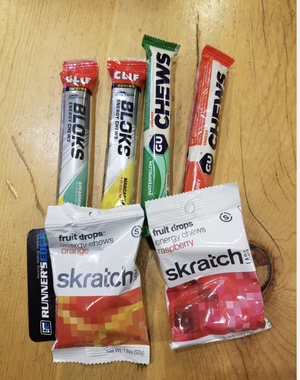

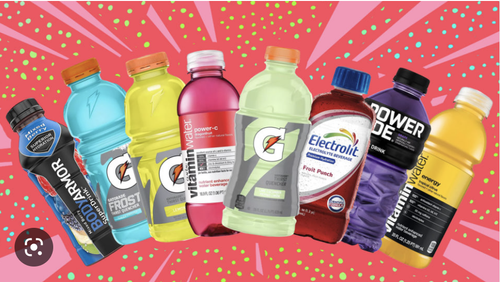
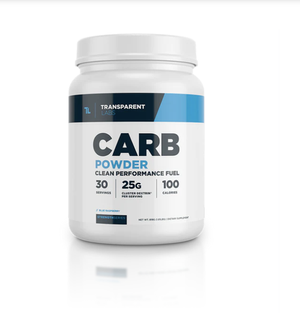
What if I like to workout fasted?
For some individuals, fasted workouts do not have a detrimental impact on their performance or recovery.
There is research that shows some efficacy for fat loss with utilization of fasted workouts. Individuals who are on a weight loss journey, may benefit from certain forms of exercise in a fasted state.
Examples of appropriate exercise in fasted state:
-
Low intensity cardio
-
Yoga, stretching
-
Bodyweight strength training
However, an important factor to keep in mind with fasted workouts is the decreased energy availability. This can lead to decreased intensity and leave individuals susceptible to injury.
Examples of exercise type to avoid in fasted state:
-
High intensity interval training
-
Heavy strength training
-
Endurance based cardio lasting greater than 60 minutes
Fasted workouts can also lead to athletes overeating following exercise.
Make sure to check with your health care provider prior to performing fasted exercise.
What about hydration?
Hydration status prior and after exercise can affect both performance and recovery. Athletes should aim to enter exercise in a euhydrated state. Following exercise, fluids should be replenished gradually.
For most type of exercise routines, water is sufficient for rehydration. Especially if the exercise bought lasted less than 60 minutes. Below are some recommendations for hydration prior and following exercise:
Before Exercise:
-
4 hours prior: 5-7 ml fluid per kg of body weight
-
2 hours prior: 3-5 ml fluid per kg body weight
After Exercise:
-
20-24 ounces of fluids for every pound of body weight lost during training
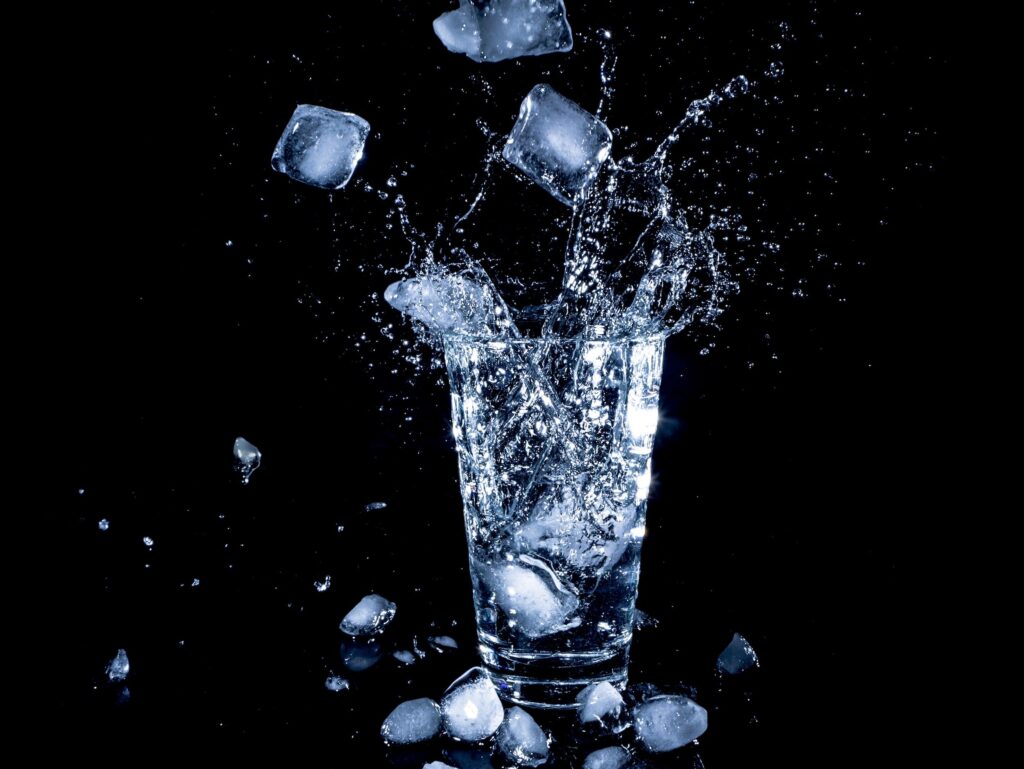
As discussed at the beginning of this blog, nutrition is not one size fits all. Depending on your sport/activity of choice, training schedule and personal goals, your nutrition needs to fit all of these factors. As a sports physical therapist, I am trained to understand basic nutritional needs of athletes. It is recommended to consult a sports dietician for more specialized nutrition plans.
If you or an athlete you are working with are interested in a personalized nutrition plan, contact us today. We would love to send you to one of our known and trusted sports dieticians to help you meet your nutrition goals!
Click here to contact us today.
Sources:
https://blog.nasm.org/workout-and-nutrition-timing
https://www.nsca.com/education/articles/kinetic-select/hydration-and-performance/



